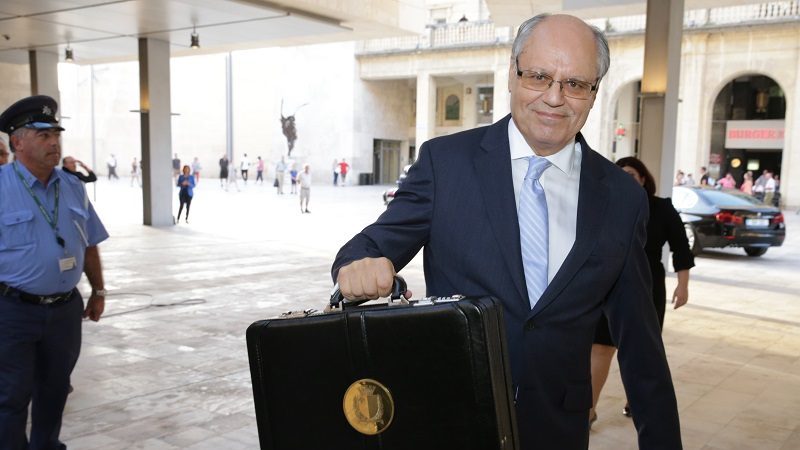A National Statistics Office (NSO) report again confirmed that tax evasion in Malta is still rampant. On Saturday, The Times reported that “illegal and undeclared economic activity was estimated at more than €320 million last year but experts believe the figure is actually significantly higher.”
According to an NSO spokesperson, the undeclared economy had grown by more than €40 million since 2016.
The so-called undeclared economy includes tax evasion resulting from undeclared or under-declared income and illegal economic activities.
Experts believe this is the tip of the iceberg but keeping to the official figures government is missing out on millions from the avoidance of income tax and capital gains tax.
I wonder what the finance minister Edward Scicluna makes of all this. Fiscal morality is as alien as snow to the Maltese and both major political parties are guilty of doing next to nothing to curb tax evasion. And I say next to nothing because consecutive governments have promised to fight tax evasion. But despite the sweet talk and the few notable measures introduced over the years, including the creation of the Tax Compliance Unit, tax evasion keeps growing.
Now Scicluna might argue that the increase is down to the bulging economic growth but I put it down to inaction. What has Scicluna and his Labour government done to curb tax evasion? Whatever has been done is evidently not enough.
In the run-up to the 2013 election, I remember asking Scicluna what were his plans to curb tax evasion and his somewhat enigmatic answer was “Tax evasion is one of the main challenges for a new government. Tax should not be looked at as a thief. But on the other hand you should not have exorbitant penalties and interest rates.”
This pretty much sums up the Labour government’s attitude on fiscal morality. While paying lip service to the EU and other international institutions, Scicluna like his Nationalist predecessors does not have the will or the desire to tackle the problem. He’s now had more than five years to device a plan and put it in action and had he done this we would be reaping the rewards by now.
But how can Scicluna be taken seriously on tax evasion when Malta’s economy is increasingly dependent on a buccaneering tax regime which denies other EU countries millions in taxes.
Foreign companies registered in Malta pay the lowest tax on profits in the EU. While local businesses pay 35% on profits, international corporations profit from a corporation tax rate of 5%, thanks to a complex system which allows shareholders to receive a tax refund of up to six-sevenths of their tax paid in Malta.
Although government and the opposition stubbornly deny that Malta is a tax haven, Scicluna himself admitted that the Maltese tax system is prone to abuse.
How can Malta be taken seriously when it sells EU passports to people whose source of income is very dubious? How can Malta be taken seriously when it has plans to become a ‘blockchain paradise’?
More pertinently, why should Maltese taxpayers feel incentivised to pay their dues when the very people running the country set up offshore companies which allow them to move money abroad and avoid paying tax in Malta?
Why should workers, self-employed and business owners feel incentivised to pay their dues when it is perfectly legal for the wealthy and powerful to park their money offshore and avoid paying tax, depriving the state of money which could be used to improve health care, schools, infrastructure and the welfare system?
Tax evasion can to be tackled by implementing legislative measures but more importantly the country needs to get its priorities right. Honesty and civic-mindedness do not pay. As long as the country and its leaders are guided by greed no amount of laws will be enough to solve the problem.













